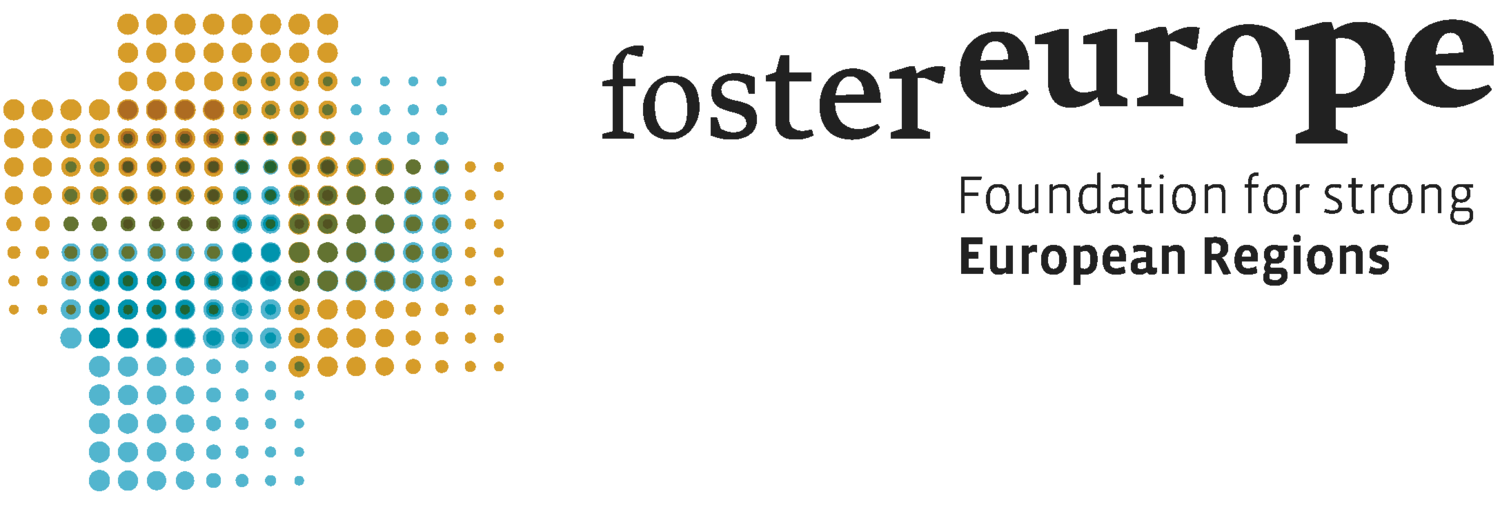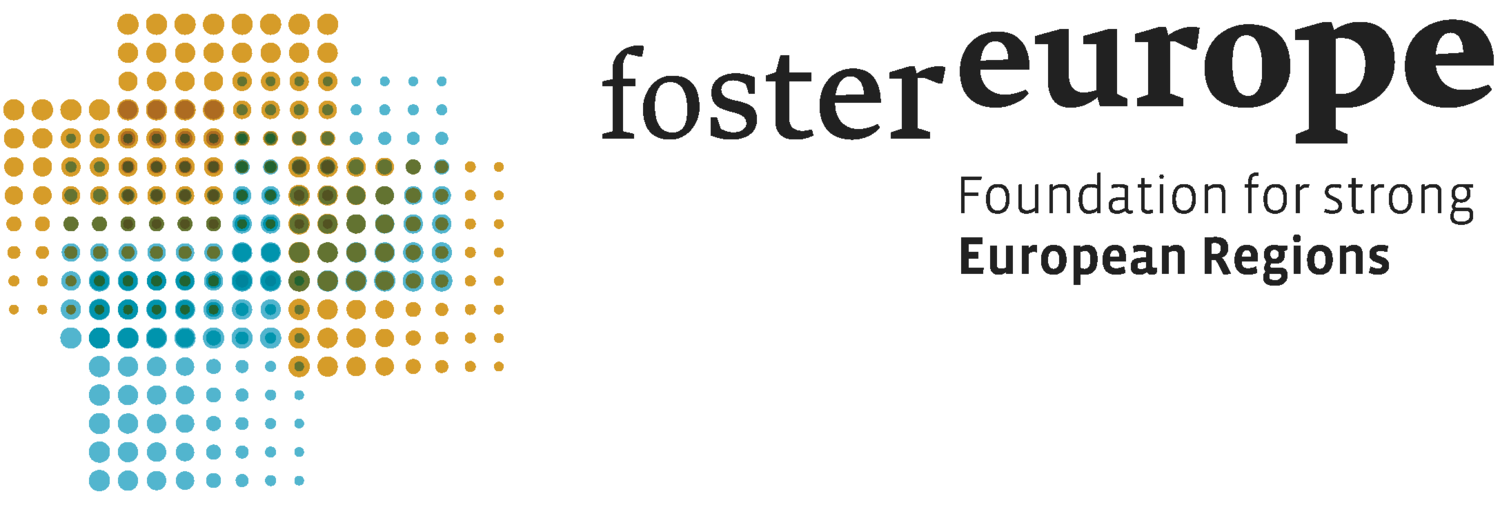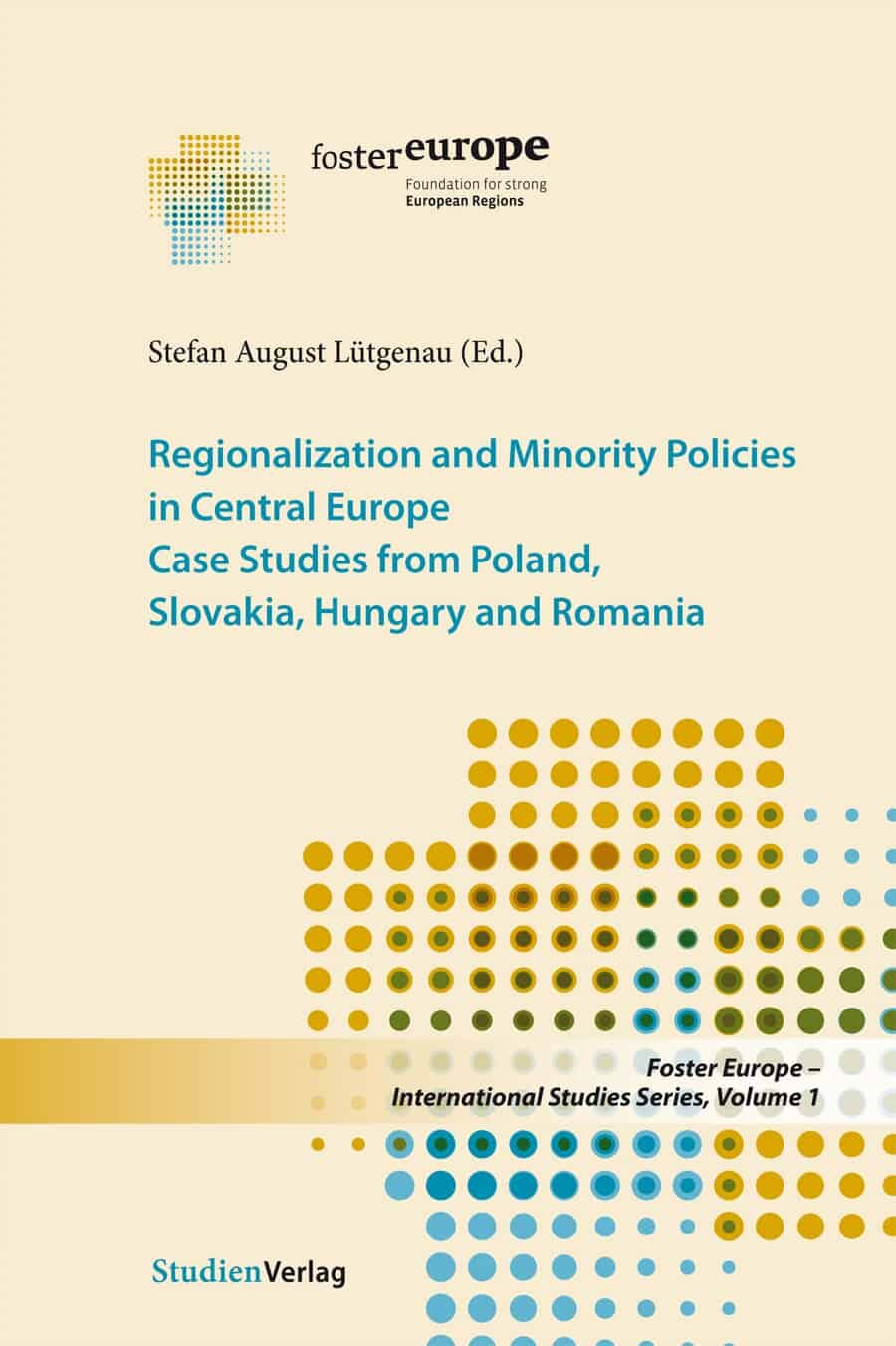Regionalization and Minority Policies in Central Europe: Case Studies from Poland, Slovakia, Hungary and Romania
Foster Europe International Studies Series, Vol. 1. Innsbruck, 2012.
If Europe in its long historic and dendritic development has common patterns, one might be its heterogeneity. Europe was and is shaped by its different regions and a number of minorities within national borders.
The highly centralized nation states in Central and Eastern Europe had to review their constitutional structures while transiting from communism to democracy. Additional drive towards regionalization was coming from the efforts to join the EU and to meet its regional policy standards as well as from advice from OECD and the World Bank to decentralize.
Regionalization in Central Eastern Europe was often suspected to play in the hands of centrifugal autonomy seeking minorities and by this endanger the national entity. There is little reason to proclaim an end of history in regionalization, decentralization and minorities in Europe. The developments in Czechoslovakia 1989/1990, in former Yugoslavia in the 1990ies and the reshaping of Serbia since 2001 have proofed this impressively. Within the European Union, there is reason to hope, that any changes will be peaceful and pursued in a political and social consensus.
New trends in the EU Regional and Cohesion policy from 2014 on will have a significant impact. Out of this new policy approach we will see a motivation of de-central structures to come into a trans-national and trans-regional dialogue with possible likeminded and partners in the EU. The new functional Marco regions in the Balitc and the Danube Region may even enforce this trend in the near future.
Foster Europe, Foundation for strong European regions will start its new International Studies Series with the present volume on regional decentralization and minorities in Central-Eastern Europe. The case studies on Poland, Slovakia, Hungary and Romania incorporating some of the hot spots in recent history.
Published: in 2011
Editor
Stefan August Lütgenau, founding director of Foster Europe, Foundation for strong European regions historian, active in the fields of international civil society networking, development cooperation and human rights. His main areas of academic research have been Holocaust Era Assets, NS-forced and slave labour, as well as European diplomatic history.
Authors
Alexandra Bitušíková received her PhD in ethnology/ social anthropology from Comenius University in Bratislava. Since 1991 she has been working at the Research Institute of Matej Bel University in Banska Bystrica, Slovakia, as a senior research fellow and in 1993-2000 as the Director of the institute. She is the author of Urban Anthropology: Trends and Perspectives (in Slovak), Women in Civic and Political Life in Slovakia; and a number of publications focussing on urban anthropology, post-socialist social and cultural change in Central Europe, identities, minorities, diversity and gender, and the editor of Cultural and Social Diversity in Slovakia. In her latest research project she has been involved in the EU Network of Excellence “Sustainable Development in a Diverse World”. Dr. Alexandra Bitušíková, PhD, !e Research Institute of Matej Bel University, Cesta na am&teater 1, 974 01 Banská Bystrica, Slovakia, tel. +421 914 138 968, email: alexandra.Bitušíková@umb.sk
Jürgen Dieringer, Full Professor, department of Political Science, Andrássy University Budapest. Hungary, 1996 to 1997 Researcher at the European Centre for Federalism, Tübingen, 1997 to 2002 Researcher University Erlangen-Nürnberg. 2001–2002 Visiting Assistant Professor, Central European University, 2001 Visiting Assistant Professor Duke University , Durham, N.C., USA.
Grzegorz Gorzelak is professor of economics, specialising in regional and local development and policies. Director of the Centre for European Regional and Local Studies (EUROREG) at Warsaw University, and professor at the Kozminski Business School (WSPiZ) in Warsaw. He is a president of the Polish Section of the Regional Studies Association. He has conducted research on multivariate statistical comparisons, regional and local development of Poland and Central Europe, postsocialist transition. Advisor to the Polish government during the local government reform in 1990, manager of PHARE program for local government (1991), consultant to several local and regional authorities on development strategies, in Poland and in Ukraine. Member of several advisory councils o the Polish government, and of two committees of the Polish Academy of Sciences. He has co-ordinated several Polish and international research programs on regional development, regional policy and post-socialist transition.
Ilona Pálné Kovács, Professor, Faculty of Arts and Humanities Dept. of Political Sciences University of Pécs, Hungary, Hungarian Academy of Sciences, center for regional Studies, Pécs. Main Topics: !e territorial issues of public administration, local policy relations, local government systems, the management aspects of regional development, regional policy in Europe.
Elzbieta Kuzborska is a PhD student at the Faculty of Law and Administration of University of Gdansk.
Ludmila Malíková, PhD, professor of Political Science at the Faculty of Social and Economic Sciences, at Comenius University in Bratislava. Mrs. Malíková works and publishes in the &eld of Public Policy, Regional and Local Democracy# and Public Administration in Slovakia. She is the author of the &rst Slovak reading book in Public Policy and author and co-author of many local and international researches focused on Local Governance and Public Service Innovations.
Christoph Schnellbach received his Ph.D. in political science from the Interdisciplinary Doctoral School at the Andrássy University Budapest.
Elena Simina Tãnãsescu, Full Professor Faculty of Law and Faculty of Philosophy, University of Bucharest, Romania, teaching EU and comparative constitutional law. Guest professor at universities in Toulon, Tunis, Paris, Strasbourg, Poîtiers. Representative of Romania in the Group of independent experts on the European Charter of Self-government next to the Council of Europe and in the Management Board of the Agency for Fundamental Rights of EU.
Luboslava Vávrová, PhDr., CSc. is leading the Local Government Development Centre since 1999 (www.crs.sk). She is experienced as consultant, trainer, coach and trainer of trainers under di’erent transformation settings with the focus on training and education, professional development of individuals, teams and public administration institutions. She has worked as lead local consultant on USAID funded projects focused on local self-government and DFID, UNDP a CIDA projects aimed to modernisation and decentralization. She has experience working also internationally on projects in Kazakhstan, Serbia, and Kenya and as CoE international expert in Moldova. She is member of ICMA and past Senior Executive Institute, at Darden Business School, University of Virginia focused on HRM. Ms Vávrová is externally teaching Local and Regional Policy at the FSES UK, IPP and E and Communication Strategies for regions at the Masmedia Faculty, Paneuropean University Bratislava.
Monica Vlad, Professor for Constitutional and Public International Law,!e Romanian-German University of Sibiu, Romania, LL.M in International Legal Studies, American University, Washington, D.C., USA (1999), Fulbright Alumni, and Scholar in Residence, !e Library of Congress (1998–2001), Visiting Professor at the University of Graz, Austria, and at the Philipps University in Marburg, Germany.
Łukasz Wardyn works for the European Commission, taught international and EU law at the Kozminski University in Warsaw.


